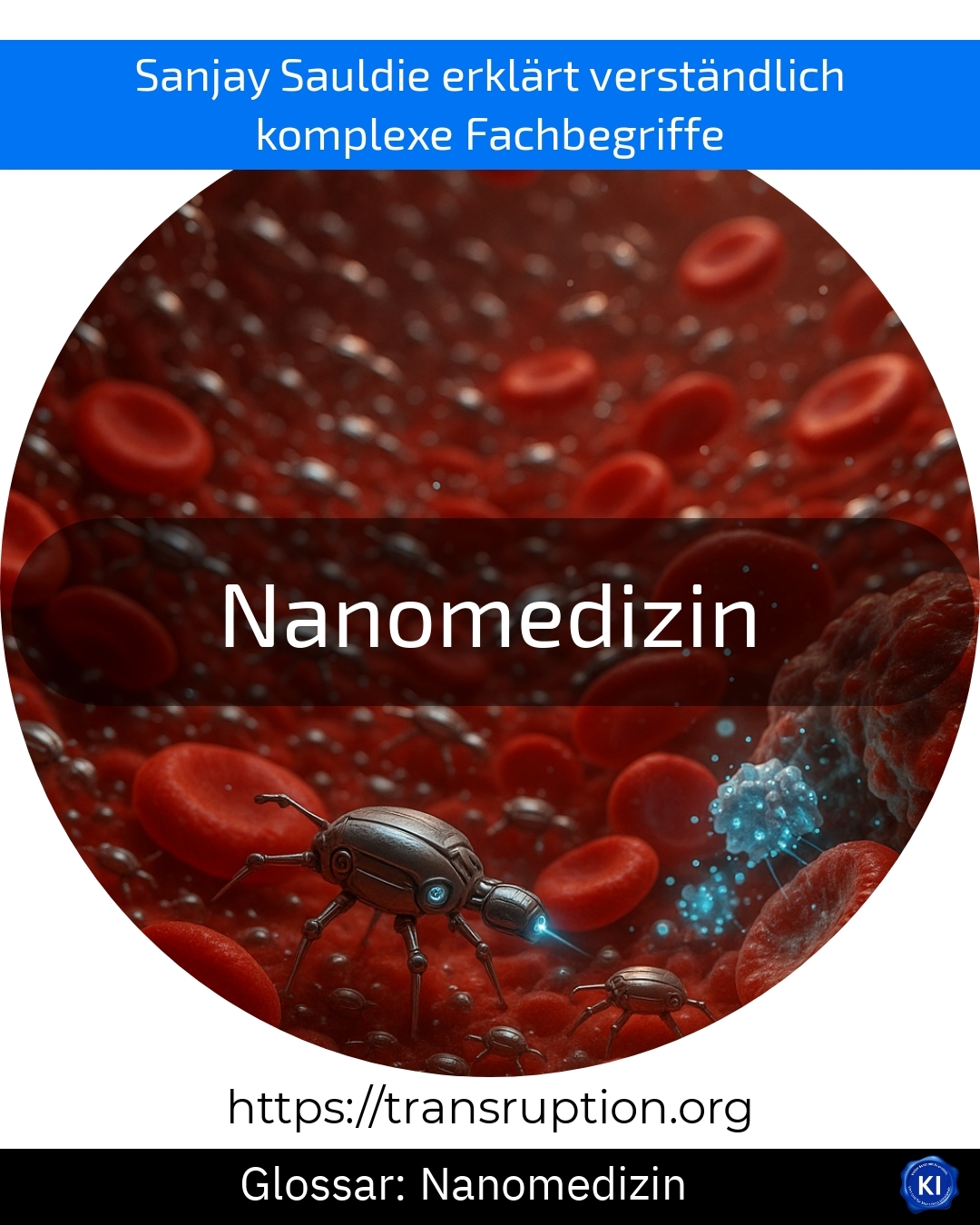Nanomedicine belongs to the categories Nanotechnology, Artificial Intelligence and Sustainability and Environment 4.0. It refers to the use of extremely small particles, so-called nanoparticles, in medicine. Nanoparticles are so tiny that they can only be seen with special microscopes.
In nanomedicine, these small particles are used to recognise diseases earlier, treat them better or even prevent them. An illustrative example: in the case of cancer, nanoparticles can specifically detect cancer cells in the body and transport drugs directly to them. This protects healthy cells and can reduce side effects.
Artificial intelligence helps to plan and monitor the use of nanomedicine. This allows therapies to be customised for each individual patient. At the same time, research is ensuring that these technologies are developed in an environmentally friendly way.
Nanomedicine is considered an important advance for our health and shows how modern technology is revolutionising medicine. It is helping to treat diseases more precisely and improve healthcare worldwide.















